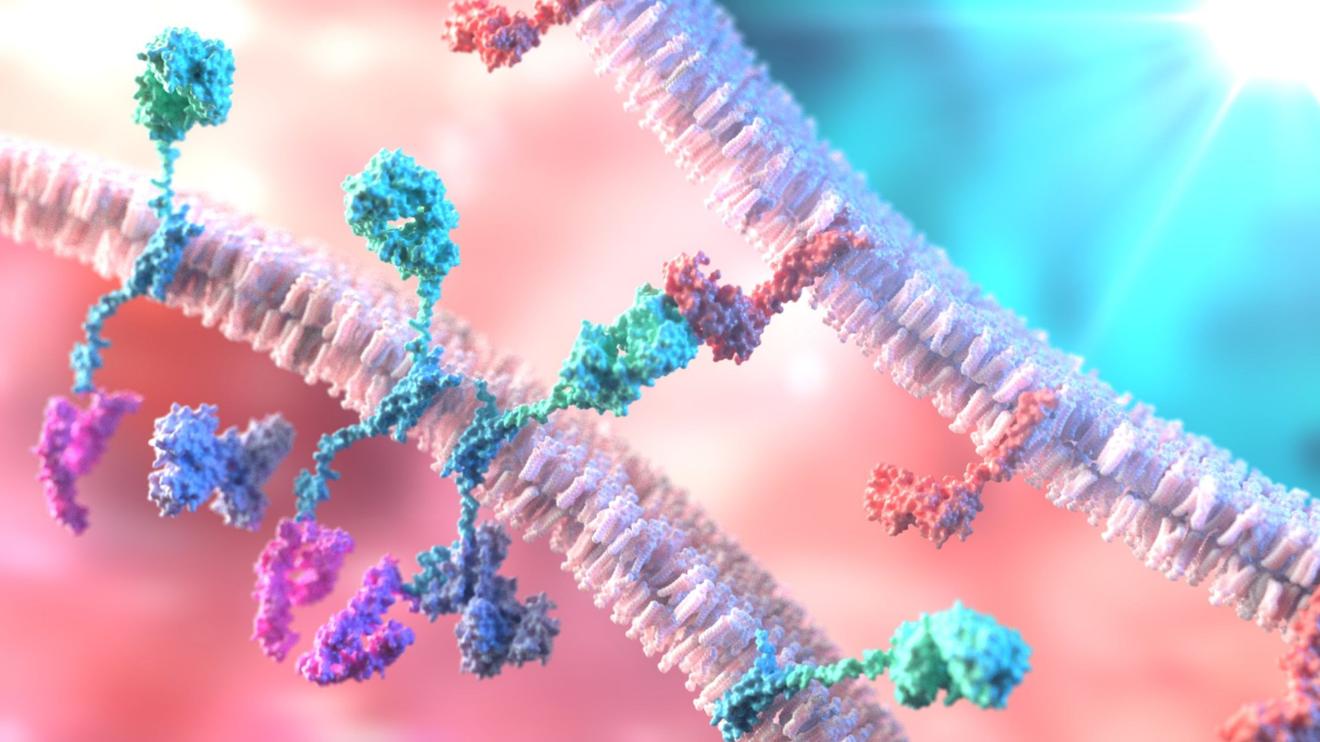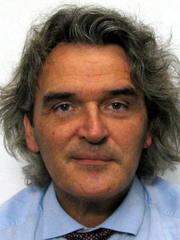T-cells are white blood cells that play a major part in our immune system. They have surface receptors which allow them to recognise specific cells and eliminate these selectively. They can differentiate between cancer cells and healthy cells. To improve the immune response, a new type of immunotherapy was developed a couple of years ago. T cells from the patient's blood are modified genetically in the lab so that the react better to cancer cells. In the meantime CAR-T cell therapy is being used successfully for the treatment of various types of cancer.
Specific type of T-cells: T cell inhibitors
In addition to attacking T cells that can destroy certain targets, there are also T cell inhibitors (also known as regulatory T cells or Treg) that balance how our immune system functions. They make sure that the immune system does not react harder than necessary and does not do too much damage. This balance is important for the activation of the immune system after an organ transplant.
First CAR-T cell therapy against rejection
A team of international researchers, including UZ Leuven doctors, is testing for the first time whether a type of CAR-T cell therapy with modified T cell inhibitors can also help in case of rejection reactions after organ transplants. They set up a trial with 42 patients undergoing a kidney transplant. A couple of weeks prior to the transplant T cell inhibitors are taken from the patient and modified genetically, so that they target specific tissue characteristics of the donor kidney. They are then cultivated in the lab to tens of millions of identical specimens. Three months after the transplant the modified cells are returned to the patient's blood via a drip. The modified T cell inhibitors will nestle in the transplanted donor kidney, where they should counteract rejection reactions by ensuring that the patient's immune system does not overreact to the donor cells.
Less anti-rejection medication as target
After an organ transplant, patients have to take anti-rejection medication for the rest of their lives, to suppress their immune system. The big disadvantage is that this increases the chance for cardiovascular diseases, infections and cancer. If this trial proves that this new type of cell therapy with T cell inhibitors is beneficial and safe, it may be possible to completely scale down the anti-rejection medication in time.
In addition, the trial also assesses what the optimal number of modified cells is that need to be administered after the transplant to reach the required effect.
Prof. dr. Dirk Kuypers, head of the kidney diseases and kidney transplant department at UZ Leuven and principal investigator of the study: “This research project is an important milestone in the development of CAR-Treg cell therapy for organ transplants. It involved five years of intensive preparation. In collaboration with various European labs more and more CAR-Treg cell lines are being developed, each more specialised and powerful than the previous ones. Continuous interaction and scientific cross-pollination between basic researchers and clinicians is essential.”
If the trial proves that this new type of cell therapy with T cell inhibitors is beneficial and safe, it might be possible to completely scale down the anti-rejection medication in time.

